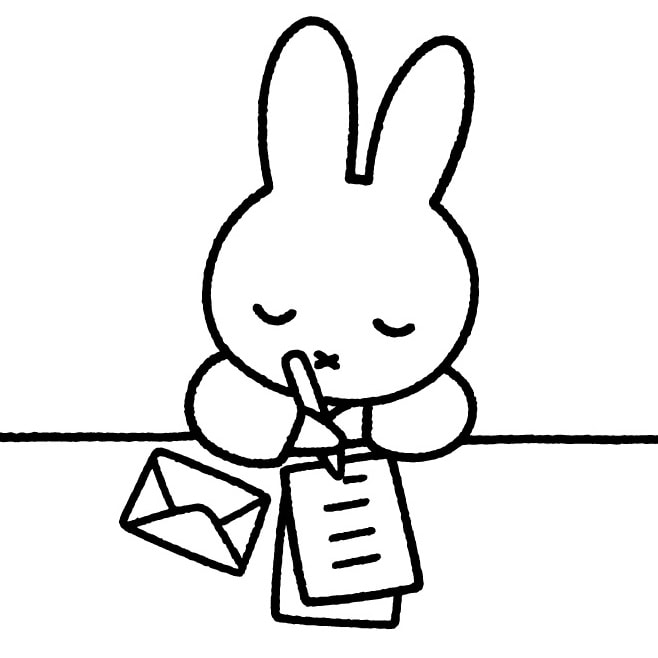|
Vitality Bowls
My first job was a part-time gig at an acai bowl chain called Vitality Bowls. I was a junior in high school and incommensurately excited about making $10 an hour, the California minimum wage at the time. It was honest, hard work, and I came home after every shift covered in flecks of blended fruit and smelling of mopping solution. It was here that I developed the worldview that every person should work in the service industry at least once to learn what it means to be a good customer, and by extension, a good person. At my peak, I could make an acai bowl from scratch in two minutes flat -- a mostly useless skill, but one I’m very proud of nonetheless.
0 Comments
Thirty minutes before my flight to Fukuoka was scheduled to depart, it was canceled due to a snowstorm. The announcement was delivered swiftly and casually, as if the speaker was announcing a 20% off sale at the duty-free store, not dooming me to ten hours of miserable ground travel.
Aggrieved, self-pitying, and on the cusp of what eventually blossomed into a full-blown cold, I took a lap around the seating area and contemplated the transportation nightmare that had befallen me: a two-hour drive for naught, $100 in airport parking fees I could have avoided, an hour-long bus ride, an overpriced bullet train that cost more than my original flight, a newly mandatory subway ride to my now far-away accommodation. I braced myself for the unique psychological torture of wasting hours on various expensive, comparatively slow methods of transport when I had been expecting a zippy plane ride, a before-sunset arrival, and a quiet evening sipping artisanal green tea somewhere swank and dimly lit. Amidst my frustrated pacing, I spotted a girl around my age still sitting down. She appeared mildly confused by the general bustle, but not quite at the adequate level of alarm the situation called for. I could tell that she was a foreigner, like myself, and figured that she must not have registered the cancellation announcement. For a second, caught up in the seeming totality of my own drama, I considered letting her figure it out on her own. Then I decided against it, remembering all the times that others had taken pity on my cluelessness. For a variety of reasons, physical attractiveness is a hard thing to evaluate. For one, it’s subjective. For two, there are all sorts of competing value systems: conventional Euro-centric beauty standards, conventional Asian beauty standards, the counterculture backlash to both of those structures, the counter-counterculture return to traditional femininity, favor-currying approaches intended to differentiate adherents from the mainstream crowd, new waves of “progressive” thinkers proclaiming affection for “mid girls” or “girls with big foreheads” or “flat noses” or whatever feature the TikTok algorithm has decided to appreciate this month. Et cetera.
You would think that the internet would provide good data for assessing attractiveness -- for example, 100 likes signals more desirability than 10, right? -- but really, numbers indicate little more than how much exposure a picture received. Because simply being perceived as attractive is a big part of being attractive, attention on the internet tends to accumulate gradually, then exponentially. A picture of a woman that has 10,000 likes is a clear signal that she is Coveted and thus, Covetable, whereas a selfie with three likes is likely to fly under the radar and go unnoticed, regardless of how attractive/unattractive the person actually is, making the whole metric more or less useless (except at scale). Additionally, particular corners of the internet are far more accepting of certain archetypes of beauty -- body modifications, e-girls, women who dress as clowns, etc. -- that may be less favored offline, making it difficult to rely on online feedback to derive a true sense of how attractive you may or may not be to, say, the normie person giving you a job interview. In short, the kind of beauty that is rewarded by attention is not always the kind of beauty that is rewarded by likability, so you should be careful what you’re optimizing for. Have you ever met a girl at a party who you found unremarkable only to later learn, to your great confusion, that several thousands of men froth over her online? Exactly. Like most people with a healthy sense of curiosity, fascination with social conventions, and/or micro bangs, I’ve tried on a myriad of identities over the course of my life. Some I liked a lot and still routinely wear; others were borne from insecurity and abandoned as I developed the ability to express myself more naturally. Either way, vestiges of all the selves I have worn before trail behind me, like a bridal train composed of memories that I recognize as mine, but feel strangely disconnected from. For example, was I actually that self-righteous as a teenager? Did I really use to get my nails done every single month? What frame of mind was I in when I considered taking an insurance salesperson job based out of Houston, Texas? When did I become someone who runs for fun?
I am sometimes jarred by the circumstances of my life. For example, I am currently sitting opposite a Cartier Christmas tree in Taipei 101 and typing this on my phone, which is strange because I am from California and don’t know a single person in Taiwan. Even though I have lived abroad for over a year, I occasionally catch a glimpse of indecipherable script on a street sign and have to remind myself, oh yeah, I’m not in America right now. I’m reminded of “Eleven” by Sandra Cisneros, the ineluctable Common Core short story that begins, “What they don’t understand about birthdays and what they never tell you is that when you’re eleven, you’re also ten, and nine, and eight, and seven, and six, and five, and four, and three, and two, and one. And when you wake up on your eleventh birthday you expect to feel eleven, but you don’t. You open your eyes and everything’s just like yesterday, only it’s today. And you don’t feel eleven at all. You feel like you’re still ten. And you are—underneath the year that makes you eleven.” I have the incorrect perception that almost everyone is confident. It’s probably because of my input channels.
For one, the vast majority of the people I interact with come to me via the internet, where everyone who makes original content has accepted, or failed to consider, that they are opening themselves to judgment from millions of people. Our collective willingness to be seen -- perhaps, our demand to be seen -- speaks to a brazen confidence that either we will be liked, or that it simply doesn’t matter if we aren’t. Second, I occupy a niche subpopulation of Japan: international teachers on JET, a program that vets for the capability to blab well-enunciated English in front of 30-40 very sleepy children, plus navigate a foreign country without succumbing to various mental illness-induced dysfunctions in the process. Thinking you can do this, or more precisely, that it is a service to those forced to observe it, requires a certain varietal of confidence. Foreigners in Japan are a very special group of people. More so than ex-pats in other places, we are noteworthy for our simultaneous reverence and distaste for the country, and our self-superiority for being able to both love and hate it so. “Gaijins are the worst,” we moan. “Except for me. I'm the exception.” Once a week, in the name of meal prep, I fill almost every container I own with brightly-colored, neatly-arranged, ready-to-go foods. I do this primarily for healthy, productive reasons: to nourish my body, to make efficient use of my time, to keep my spending in check. I do this secondarily so I can post a pretty flat lay on Twitter and impress three to four strangers.
Meal prep, in its broadest definition, is any active planning and preparation of food to eat in the future. This can be chopping fruits and vegetables ahead of time, cooking a massive quantity of food to freeze for later consumption, or making whole meals ahead of schedule. In this blog, I focus on the particular style of meal prep that I practice: preparing several individually-portioned meals in advance. Among first-time meal preppers, the biggest mistake in approach is misunderstanding what meal prep entails. Learning how to meal prep is not simply learning how to make one week’s worth of food in a single go. It’s learning how to make one week’s worth of food in a single go every single week, in perpetuity, and actually eating it. This is a very different challenge. Ultimately, meal prep is an exercise in forecasting. What will you, four days from now, desire to eat? What will you -- given the constraints of time, the temptations of the modern world, and the unforeseeable circumstances of life -- realistically prepare and consume? As expected, meal prep will give you essential kitchen skills and easy access to high-vibrational domestic bliss. Both are a pleasure to possess. But more valuably, it will teach you how to apply self-knowledge to follow through on your decisions. If you give a man a fish, he will eat for a day. If you teach a man to fish, he will eat for life. If you give someone a one-week meal prep plan, they will eat well for a week. If you teach someone how to meal prep, they will eat well for life. As such, this blog post is not a step-by-step guide on how to make a specific menu of meals. If you want that, I can make you a custom plan, complete with a store-specific grocery shopping list, for a very reasonable price. But that would be selling you a product, and I want you to learn a skill. This blog post is a series of helpful framings and advice to help you tackle meal prep in a wise, minimally onerous way. Section 1 presents the three dimensions of “good” meal prep -- healthy, yummy, varied -- and includes exercises to help you achieve all three. Section 2 provides handy tips to apply at different stages of the meal prep process, all the way from planning to plating. Rather than repeating common-sense advice, I tried to include original information and insights wherever possible. Section 3 acknowledges that meal prep can be hard, offers strategies to make it easier, and concludes with tough love about how you should do it anyway. Section 4 is a breakdown of my meal prep routine, complete with my actual thought process, to give you a more concrete idea of what meal prep looks like. Section 5 answers questions I didn’t address in the main text. Section 6 provides some reasons why one might want to meal prep, as well as details my own motivations. Overall, the blog aims to lessen the struggles associated with meal prep and to guide you towards a stress-free, individually-tailored, and maximally beneficial meal prep practice. Before we begin, take a second to remember that you have spent a lifetime living and eating. You know what your life is like. You know what you like to eat. You know what you don’t like to eat. You know yourself. All of these qualities make you exceptionally capable of meal prepping, and meal prepping well. |
categories |
Proudly powered by Weebly


